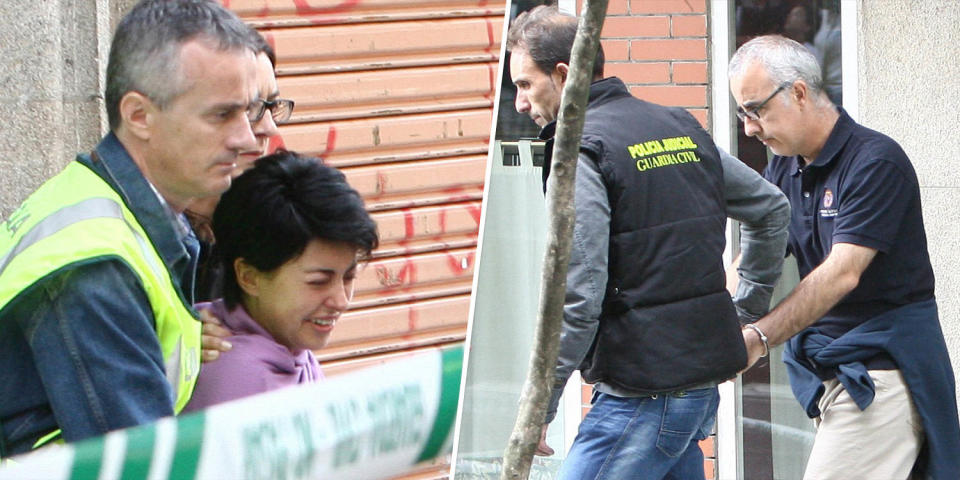Netflix’s newest true crime drama, “The Asunta Case,” unpacks a murder that stunned the Spanish public in the early 2010s, when a Chinese-born girl adopted by Spanish parents was found dead on a countryside road in northwestern Spain. The show ends with the parents’ conviction in court.
In 2015, a jury in Santiago de Compostela found Asunta Fong Yang’s adoptive parents, Rosario Porto and Alfonso Barrera, guilty of planning and carrying out her murder. Asunta’s disturbing murder rocked Spain a decade ago. What has happened to her adoptive parents since?

What happened to Rosario Porto?
After being sentenced to 18 years in prison for Asunta’s murder, Porto was sent first to the Penitentiary Center of Teixeiro in northwestern Spain, according to the Spanish newspaper El Pais, and then transferred to the A Lama prison in Pontevedra, then to Brieva penitentiary in Ávila.
At all three prisons, Porto was put in anti-suicide protocol programs, according to El Pais and multiple Spanish outlets. In February 2017, she was hospitalized after overdosing on a prescription drug, and in November 2018, she wrapped a cord around her neck in the shower and was stopped by prison staff due to a cellmate who knew about her plans.
It was at Brieva that Porto eventually died by suicide in November 2020. According to El Pais, Porto’s cell was tidied up when prison workers found her inside hanging by her neck, suggesting the death was premeditated.
What happened to Alfonso Basterra?
Alfonso Basterra, Asunta’s adoptive father, was also put behind bars in 2015. He has spent the past nine years at Teixeiro, where Porto was initially sent.
That year, after only a few weeks at Teixeiro, Spanish newspaper El Correo Gallego reported Basterra sent a letter to Porto in which he stated that he planned to die by suicide after he was released from prison.
“I want you to imagine me next to the little bird, my little peponcita, whom I miss so much,” Basterra wrote.
According to El Correo, Basterra was denied prison leave throughout his time at Teixeiro by the prison’s Treatment Board as well as the Penitentiary Surveillance Board of Galicia. He had previously been caught “passing” a prohibited object to a troublesome inmate and was put in isolation after alleged confrontations with other inmates.
El Correo also reported that, in 2017, Basterra sent a letter to the producers of the documentary “Lo que la verdad esconde: el caso Asunta,” produced and released in Spain in 2017. He wrote, in part:
“When I regain my freedom, I have the firm intention of disappearing, no one will hear from me again, not even Rosario Porto. I only have one reason to stay alive, which is none other than to be a free man again and reunite with my girl, never before. In fact, I’ve already thought about how and where, I just don’t know when, but everything comes [eventually].”
In 2025, Basterra will have completed two-thirds of his sentence, according to El Correo, and thus be eligible for “open regime,” which in the Spanish prison system marks a step toward full freedom in terms of supervision, confinement and permitted privileges.
Though he might be eligible for certain additional freedoms in prison under “open regime,” Basterra has stated that he will finish out every last day of his sentence to prove his innocence, as mentioned in “The Asunta Case.”
This article was originally published on TODAY.com
